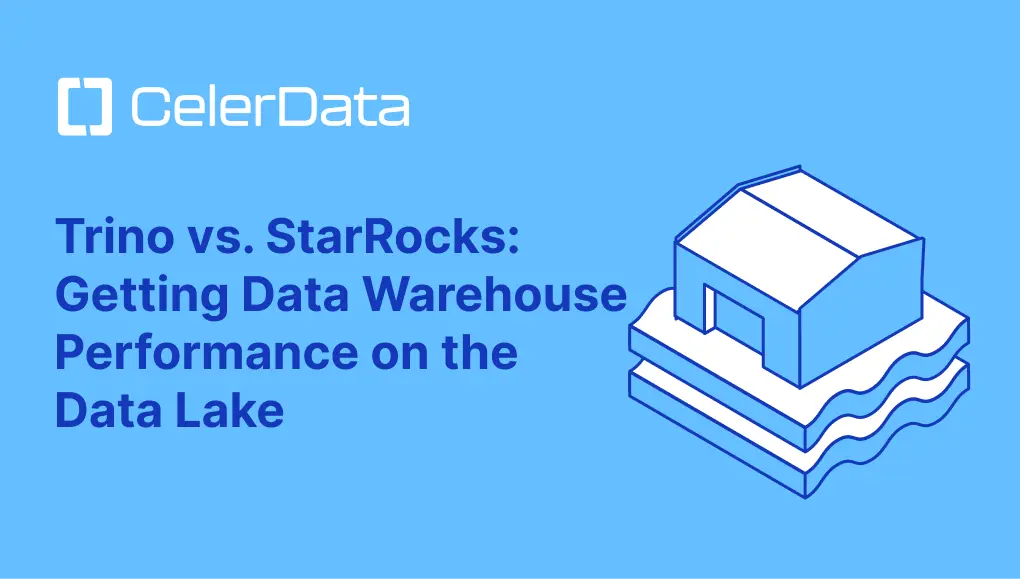
Data Scientist

Join StarRocks Community on Slack
Connect on SlackWhat Is a Data Scientist
Definition and Overview
A Data Scientist uses data to solve problems. Businesses rely on Data Scientists to make informed decisions. Data Scientists analyze large datasets to find patterns. These patterns help predict future trends.
Key Responsibilities
Data Scientists collect and clean data. They use statistical methods to analyze information. Data Scientists create models to predict outcomes. They communicate findings to stakeholders. Data Scientists ensure data accuracy and reliability.
Typical Work Environment
Data Scientists work in various settings. Offices, labs, and remote locations serve as their workspaces. Data Scientists use computers and specialized software. Collaboration with teams is common. Data Scientists often attend meetings to discuss projects.
Historical Context
Evolution of the Role
The role of Data Scientist has evolved over time. Early data analysis focused on simple statistics. Advances in technology expanded the role. Machine learning and artificial intelligence became important. Data Scientists now use complex algorithms.
Current Trends
Current trends show high demand for Data Scientists. Industries like healthcare and finance seek Data Scientists. New tools and technologies emerge regularly. Data privacy and ethics gain attention. Data Scientists adapt to these changes.
The Impact of Data Scientists Across Industries
Data Scientists play a crucial role in transforming industries. Their expertise helps organizations harness the power of data to drive innovation and efficiency. Let's explore how Data Scientists impact various sectors.
Healthcare
Predictive Analytics
Data Scientists use predictive analytics to improve patient care. Hospitals rely on Data Scientists to analyze patient data. This analysis helps predict disease outbreaks and patient outcomes. Predictive models guide treatment plans and resource allocation. Healthcare providers can make informed decisions with these insights.
Personalized Medicine
Personalized medicine tailors treatments to individual patients. Data Scientists analyze genetic and clinical data. This analysis identifies the most effective treatments for each patient. Personalized medicine improves patient outcomes and reduces healthcare costs. Data Scientists enable this transformation by providing actionable insights.
Finance
Risk Management
Data Scientists enhance risk management in finance. Financial institutions depend on Data Scientists to assess risks. They analyze market trends and customer data. This analysis helps identify potential risks and opportunities. Risk management strategies become more effective with data-driven insights.
Fraud Detection
Fraud detection relies heavily on Data Scientists. Banks and financial firms use Data Scientists to detect fraudulent activities. They analyze transaction data to identify unusual patterns. Machine learning algorithms help flag suspicious activities. Data Scientists help protect organizations from financial losses.
Retail
Customer Insights
Retailers gain valuable customer insights through Data Scientists. Data Scientists analyze sales and customer data. This analysis helps retailers understand customer preferences. Retailers can tailor marketing strategies and product offerings. Data-driven insights lead to increased customer satisfaction and loyalty.
Inventory Management
Inventory management becomes more efficient with Data Scientists. Retailers use Data Scientists to optimize inventory levels. They analyze sales trends and demand forecasts. This analysis helps prevent stockouts and overstock situations. Efficient inventory management reduces costs and improves profitability.
Skills and Attributes of a Successful Data Scientist
Technical Skills
A successful Data Scientist must possess a robust set of technical skills. These skills form the backbone of their ability to analyze and interpret data effectively.
Programming Languages
Proficiency in programming languages is crucial for a Data Scientist. Python and R stand out as the most popular choices. Python offers versatility and a rich ecosystem of libraries like Pandas and NumPy. R excels in statistical analysis and visualization. Mastery of these languages enables Data Scientists to manipulate data efficiently.
Data Analysis Tools
Data Scientists rely on various tools to analyze data. Tools like Tableau and Power BI help create visualizations that communicate insights clearly. Hadoop and Spark handle big data processing. SQL remains essential for database management. Familiarity with these tools enhances a Data Scientist's ability to extract meaningful insights from complex datasets.
Personal Attributes
In addition to technical skills, personal attributes play a significant role in a Data Scientist's success. These attributes enable them to navigate challenges and collaborate effectively.
Problem-Solving Abilities
Problem-solving abilities are vital for a Data Scientist. Data Scientists encounter complex problems that require innovative solutions. Analytical thinking helps break down problems into manageable parts. Creative approaches lead to effective solutions. Strong problem-solving skills drive successful data-driven decision-making.
Communication Skills
Communication skills are essential for conveying insights. Data Scientists must translate complex findings into understandable terms. Clear communication ensures stakeholders grasp the significance of data insights. Storytelling techniques enhance presentations. Effective communication bridges the gap between data analysis and actionable strategies.
The Demand for Data Scientists
Market Trends
Industry Growth
The demand for Data Scientists continues to rise. Businesses across various sectors seek skilled professionals. The role of a Data Scientist has become crucial in driving innovation. Job openings are expected to grow by 59,400 annually from 2022 to 2032. Organizations recognize the value of data-driven insights.
Job Availability
Data Scientist positions are plentiful. Companies need experts who can interpret complex data. Clear communication of insights is essential. The ability to transform raw data into actionable strategies is highly valued. Opportunities exist in healthcare, finance, and technology.
Salary Expectations
Entry-Level Positions
Entry-level Data Scientists earn competitive salaries. The average starting salary in the United States is around $120,000. This figure reflects the high demand for analytical skills. New graduates find rewarding opportunities in this field. The potential for growth attracts many to this career path.
Experienced Professionals
Experienced Data Scientists command even higher salaries. Top professionals earn over $200,000 per year. Expertise in machine learning and predictive modeling increases earning potential. The role remains one of the highest-paying in technology. Skilled Data Scientists enjoy both financial rewards and job satisfaction.
Career Prospects and Benefits
Career Pathways
Advancement Opportunities
A career as a Data Scientist offers numerous advancement opportunities. You can start in an entry-level position and progress to senior roles. Many organizations provide pathways for growth. You can become a lead Data Scientist or a data science manager. Leadership roles often involve overseeing projects and mentoring junior team members. Continuous learning and skill development enhance your chances for promotion. Staying updated with the latest tools and techniques is crucial.
Specialization Areas
Data Scientists have the option to specialize in various areas. You can focus on machine learning, deep learning, or natural language processing. Specializing in a specific area can make you an expert. Expertise in a niche field can increase your value to employers. Some Data Scientists choose to specialize in industry-specific applications. Healthcare, finance, and retail offer unique challenges and opportunities. Specialization allows you to tailor your career to your interests and strengths.
Benefits of Being a Data Scientist
Job Satisfaction
A career as a Data Scientist provides high job satisfaction. You solve complex problems and make data-driven decisions. The work is intellectually stimulating and rewarding. Many Data Scientists enjoy the challenge of analyzing large datasets. The ability to see the impact of your work on business outcomes is fulfilling. Job satisfaction often comes from contributing to meaningful projects.
Impactful Work
Data Scientists have the opportunity to engage in impactful work. Your insights can drive innovation and efficiency in organizations. Many industries rely on Data Scientists to improve processes and strategies. You can help healthcare providers enhance patient care. Financial institutions depend on your expertise for risk management. Retailers use your insights to optimize customer experiences. The potential to make a difference in various sectors is significant.
Conclusion
Data Scientists shape the future of business and technology. You can drive innovation with data-driven insights. Organizations report high returns from analytics investments. Data Scientists transform raw data into actionable knowledge. Every industry benefits from skilled Data Scientists. The demand for these professionals continues to grow. Consider a career in data science for growth opportunities. Data Scientists play a crucial role in modern success. Embrace the potential for impactful work and innovation.



.jpg)